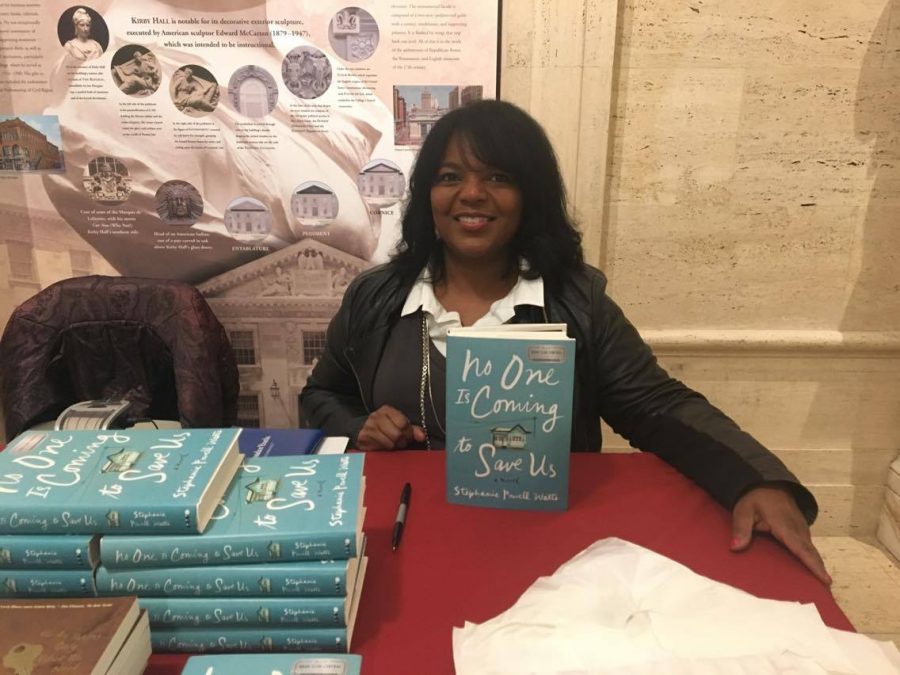When Stephanie Powell was growing up in North Carolina, she heard “stories that were the sagas of country people. Some were upwardly mobile. Some were not.”
“But there were hard times, full of the ghost of Jim Crowe, full of ghosts of personal heartbreak. We have to tell the truth of those times and of our time. An idealized view does not do justice to the people who lived and struggled,” she said in a talk at the college on Wednesday.
In her book “No One is Coming to Save Us,” Powell gives a different take on the events that unfold in “The Great Gatsby,” with it being set in the modern era, telling a different side to the story. The novel tells the story of a struggling North Carolina town and an African-American family living there, meanwhile outlining what the American Dream means to each of them.
JJ, the protagonist, returns home to North Carolina with more wealth than he left it with. He goes there to fulfill his dreams of building a home and sweeping his high school love off her feet but finds that much of what he once knew had changed.
During her talk, Powell asked the audience what popped into their heads when they thought of “The Great Gatsby.” Some answers were partying, romance and the green light and its symbolism. Powell said that this was her point—other events in the novel included a hit and run and murder, but those who know the plot don’t think of them. Her point in this was showing the audience that portraying pain and uncomfortable pasts is important in storytelling.
Katherine Leiva ’21 said that it was very insightful to hear Powell speak, especially on “The Great Gatsby.” She described it as almost a “parallel universe” perspective on the novel. She also touched on the fact that Powell wrote not about the experiences she had growing up in North Carolina, but one she didn’t. Powell talked about how her family moved around relatively often when she was a child, whereas the family portrayed has stayed put in their town.
Director of Special Collections Diane Shaw asked Powell whether she thought of herself as a southern writer. Powell responded that she does, but not just because she is from the South and writes about it.
“Everything I write is in influence of history and race and the landscape of the South, which is a particular kind of landscape. So I think that’s where I’m coming from,” she said.
Powell also discussed her movement from a short-story writer to a novelist, with “No One is Coming to Save Us” being her first full-length novel. She said she will probably always write short stories in one way or another, but that she was excited to have embarked on her first novel.
Recently winning NAACP distinctions for outstanding literary work in fiction and outstanding literary work as a debut author, Powell’s novel was named one of the best books of 2017 by Entertainment Weekly, Bustle, Nylon and other publications. Previously, she won the Ernest J. Gaines Award for Literary Excellence for her first short story collection in 2012. She is currently an associate professor at Lehigh University.





















































































































